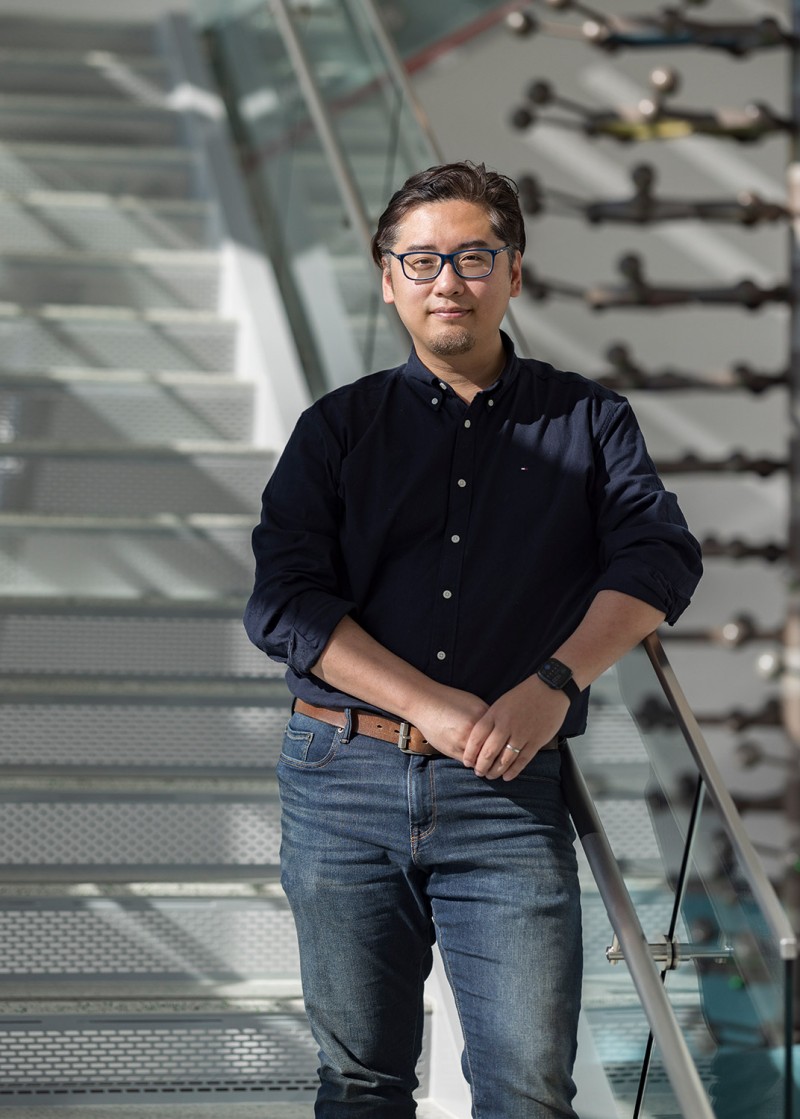While he was mentored by experts pushing the frontier of medical science, Assistant Professor of Pharmaceutical Sciences Kuo-Ching (KC) Mei is now inspired by the ambitious students he works alongside at the School of Pharmacy and Pharmaceutical Sciences.
"After working at various institutions, I was excited to join a place where I could build my own lab from the ground up and help shape the next generation of healthcare professionals, scientists and pharmacists," he says. "One of the things I found especially appealing was the chance to be part of a young and innovative SOPPS, where there is room to grow and where I can make a real impact both in the classroom and in the lab."
Fascinated by "how drugs work," Mei's career as a licensed pharmacist and researcher started around drug-delivery systems, a field that focuses on improving transportation of compounds to targeted sites in the body and reducing side effects.

When it came time to establish his own lab, Mei prioritized joining a burgeoning research community as a leader and mentor. He believed that Binghamton University's collaborative environment could take his research on immunoengineering to new heights.
Stationed inside SOPPS, the state-of-the-art MEI Lab is equipped to tackle issues surrounding immunogenicity - a major challenge in gene therapy that prevents access to safe, effective treatment. The team, ranging from undergraduates to postdocs, uses nucleic acid drugs to communicate with the immune system and help the body tolerate adeno-associated virus-based therapies.
Their goal is to offer new hope to patients with limited options. In summer 2024, the MEI Lab received $1.9 million in funding as part of the Maximizing Investigators' Research Award from the National Institute of General Medical Sciences.
As a result, MEI Lab team members have been able to accelerate progress toward groundbreaking discoveries and ensure stability for years to come.
"By working on projects like RNA therapeutics, lipid nanoparticle development and T cell engineering, [students] acquire the skills and knowledge needed to solve real-world healthcare challenges," Mei says. "It's incredibly rewarding to see students grow through their involvement in these projects, preparing them for careers in pharmaceutical sciences and biotechnology. The grant gives us the resources to solidify our long-term research strategy and explore new approaches to immune modulation and gene therapy delivery."
Dean and SUNY Distinguished Professor Kanneboyina Nagaraju believes Mei's work could address a critical problem in modern healthcare.
"Mei is an outstanding young investigator and his innovative work will significantly enhance both efficacy and safety of this therapeutic intervention," Nagaraju says.
However, beyond his potential contributions to healthcare, Mei's "greatest source of pride" has been witnessing the transformative growth students undergo during their time at Binghamton.
"Knowing that the MEI Lab plays a role in shaping their future careers is a powerful reminder of why I pursued this path - to mentor, guide and empower the next generation of scientists, pharmacists and healthcare professionals," Mei says. "Their achievements inspire me to keep pushing our research forward and to continue creating new opportunities for every student who steps into our lab."







